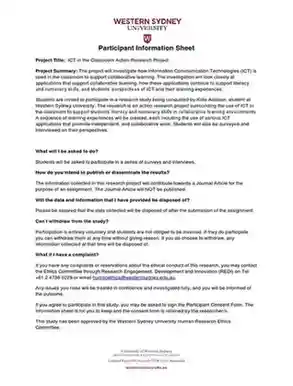What is Doctoral Dissertation?
A doctoral dissertation is one of the longest pieces of writing, in which you are the author, and you need to provide a ...

An Ethic form is a very necessary document that every researcher needs to make before they start writing their research proposal. Students who face difficulties while making an Ethic form also don’t know how to write a research proposal. Therefore, they should learn to write a research proposal because it is the next part of the dissertation after Ethic form. In this blog, you will learn how to write an Ethic form. Without taking your extra time, let's start with "What is an Ethic Form".

An ethics form also referred to as an ethical consent form, plays the role of a detailed explanation of the ethical issues that will be faced in research. It guarantees that the research is ethical and respects the participants' rights and welfare. This form is usually completed to satisfy a requirement of academic institutions before engaging in any research project that involves people.
Ethics form encompasses information on the purpose and procedure of the research, risks, and benefits, measures of confidentiality, and consent procedure. It greatly helps the cause of transparency and accountability on the part of the researcher by making certain that participants understand the proposed research and gladly consent to participate in it.
| Worried About How to Write an Ethic Form?
Workingment is Here to Help You In Ethic Form |
In this heading, we are going to mention all the steps to write an Ethic form so let's start:
The form should begin with the title of the research project as it is the face of the entire research but most of the students fail to understand the importance of choosing the right dissertation topic, and then the details of the researcher, his or her name, university affiliation, and contact details. It is also necessary to indicate the contact information of the co-researchers or supervisors, if any. This section explicitly provides information on who the researchers are and to whom reports should be made.
The form must indicate the purpose of the research and investigation. This is the process of introducing the study, its goals, and its importance. This is important because when writing the proposal, it is important to give the rationale for the study which will help the ethics committee appreciate the significance of the study and its impacts.
The methodology chapter should consist of a description of the theoretical basis of your research and a summary of choices made. It is sort of a roadmap of a floor plan. At its best, it should be able to let the reader see how you went about designing your study. Students need to know how to write the dissertation methodology for making a well-structured Ethic form as it is one of the most important parts of the Ethic form.
The participant's section highlights details about the target population, along with the criteria for inclusion and exclusion of the participants, and determines the methods that will be suitable for selecting the sample participants. This section specifies the number of participants involved and justifies the choice along with the presentation of any special considerations surrounding vulnerable populations that are addressed in this section to safeguard their interests.
Outlining the process, which is involved in seeking informed consent that includes information which is provided to the participants about the purpose of the study and the procedures, as well as risks and benefits. Description of the process of how consent is achieved is documented in this section along with highlighting the right for participants to withdraw from the process. Any potential challenges that may be taken into consideration need to be highlighted in this section that may involve seeking consent.
Assessment of the potential physical psychological social and economic risks that are applicable for the participants is undertaken in this section with the description of the measures that are strategies for minimizing the risks. Further benefits that are applicable and can be achieved by the participants need to be highlighted if there are no specific benefits, it is also need to be directly mentioned for the information to be gathered by the participants.
The form needs to include the strategies undertaken for the privacy maintenance of participants and how it will be protected during the research process. This section is important for addressing any issues surrounding anonymity and reporting of the data while also highlighting any limitations to confidentiality.
The key purpose of this section is to outline the data retention policy, which includes the storage duration of the data, as well as accessibility of the data and destruction procedures. Any methods or requirements for securing sensitive information and how it is likely to impact the participants need to be presented in this section of the form.
Addressing ethical considerations is tremendously important while conducting a research study for the safeguarding of the basic human rights of the participants. Ethical issues, which are oriented towards challenges such as conflicts of interest or use of deception and cultural sensitivities, need to be mentioned and taken into consideration in this section while highlighting the strategies for addressing the potential ethical issues.
Detailed explanations of the procedures are needed for the handling of unexpected findings, or adverse events. Further details also needed to be included in ethical considerations surrounding the process of dissemination of the results while ensuring accurate and responsible reporting. All this information is also to be added to the findings of the dissertation and for that, every student should have the knowledge of how to write the dissertation results section.
Presentation of an overview of the duration of the project that is Broken down into key phases of the research process, including recruitment, data collection process, analysis of the data, and reporting. The timeline is segregated into estimated start and end dates for each of the individual phases including the expected timeline for which the research process is anticipated to be completed as stated in NEPJOL.INFO.
This section requires the provisions of signatures from key individuals involved in the research process to be presented which primarily include the primary researcher as well as the supervisor and ethics committee chair. These signatures are essential and confirm the accuracy of the information that has been provided and presented throughout the ethics form well as develop a commitment to conducting the study while maintaining ethical and moral responsibility.

(Source: Scribd)


(Source: Scribd)
Some potential ethical questions include:
1. How will you acquire and document the informed consent of the participants?
2, What are the potential risks and benefits to the participants from the research process, and how will they be mitigated?
3. How will the confidentiality and anonymity of the participants be maintained, along with data privacy, throughout the research?
4. What are the procedures that are put in place for participants to withdraw from the study?
There are so many dissertation writing services in UK that provide the complete research project to the students with their dissertations, offering the best assistance so that the students can get good marks in their dissertations. Workingment is one of them that offers the best dissertation writing service.
| Place The Order And Get Your Ethic on Time
Receive High-Quality, Original Dissertations and Ethic , Free From AI-Generated Content |
An ethical consent form is a key document that provides participants of a research process with the crucial information surrounding a research study and outlines the purpose of the study, along with its risks and benefits, and the rights of the participants. The ethical consent form helps ensure that the individual participants are provided with all necessary information to make decisions about their participation and generally covers factors of confidentiality, voluntary participation, as well as their right to withdraw. By signing the ethical consent form, participants acknowledge their willingness to provide their opinions and answers through their role in the research process.
The time that is commonly taken to complete and write ethics forms for dissertations is likely to vary. The variation in time is often based on factors such as the complexity of the research and the experience of the researcher. In some cases, simple studies are likely to take a few hours or days at maximum, while in certain complex project,s which include sensitive topics. Time is often spent in the process of researching ethical guidelines as well as developing predictions of possible issues, as well as setting safeguarding standards. However, even though it might be time-consuming, the formulation of a well-prepared ethics form for a dissertation can help in preventing future ethical complications.
An ethics form is essential in a research study for maintaining its integrity and the protection of human subjects, as it enables researchers to be able to take into consideration potential ethical implications before they start a research study or data collection. The common ethical implications often include the identification of potential risks and safeguarding the rights of the participants, where the ethics form helps in promoting transparency and accountability. Ethics forms for dissertations help contribute towards the improvement of the quality and reliability of scientific research and allow for the development of public trust towards academic institutions.
Ethical issues are likely to emerge at various stages throughout the research process. Data collection can potentially lead to issues that are unexpected and raise ethical dilemmas. In cases of analysis, ethical dilemmas revolve around data integrity issues or the maintenance of anonymity and post-publication data sharing.
Let's Book Your Work with Our Expert and Get High-Quality Content

Loved reading this Blog? Share your valuable thoughts in the comment section.
Add comment